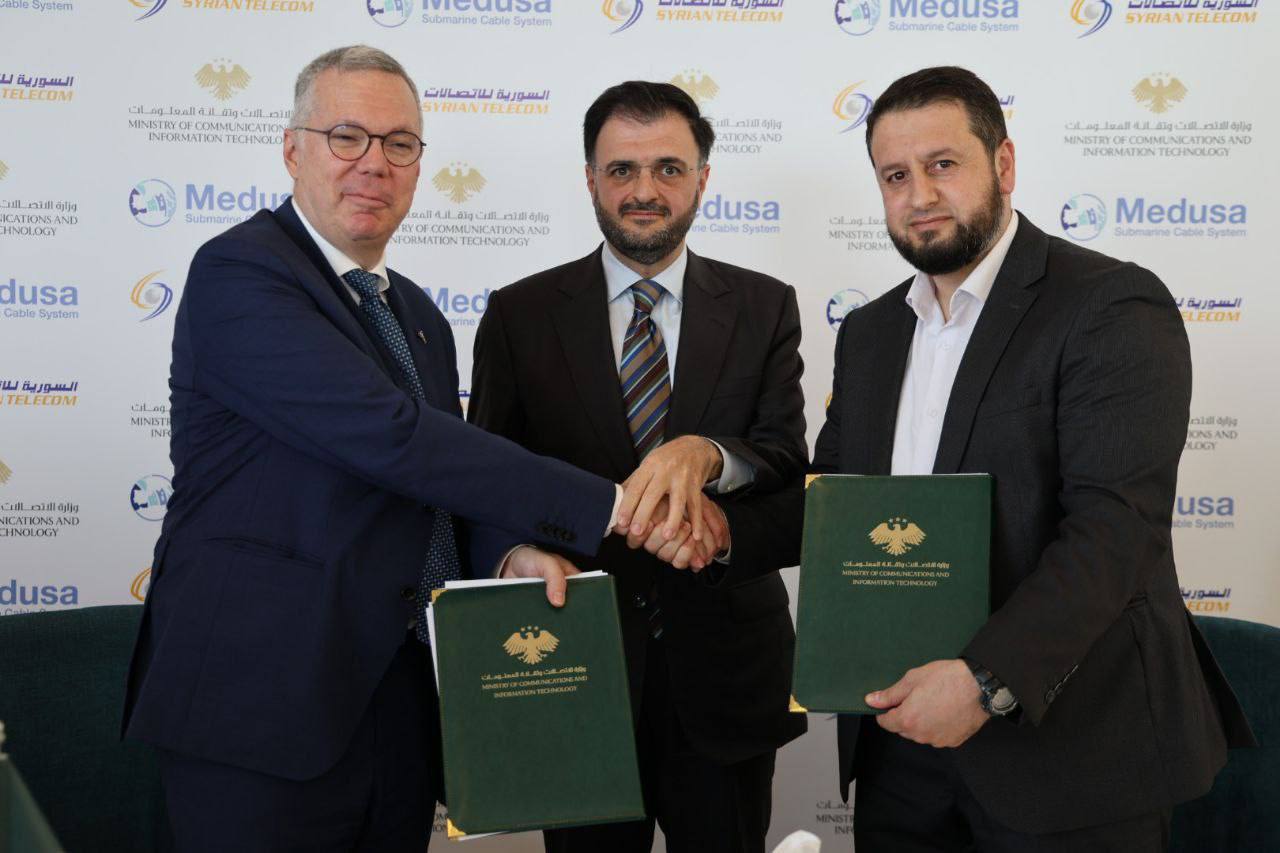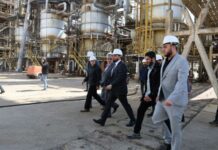
In a milestone for the country’s digital revitalization, the Ministry of Communications and Technology announced signing an agreement to install Syria’s first international submarine cable at the Tartous landing station.
The project—titled “Connecting Continents”—was formalized during a ceremony attended by Communications Minister Dr. Abdulsalam Haykal and Medusa project director Norman Albi of the Spanish telecommunications company Medusa.
Officials described the project as a strategic cornerstone in rebuilding Syria’s communications infrastructure, which has been severely damaged by years of conflict and hampered by Western sanctions.
Rebuilding a Digital Corridor Between Asia and Europe
During a field visit to Tartous Port, Dr. Haykal inspected the installation site, accompanied by local officials and technical experts. He emphasized that the project represents a new phase in Syria’s digital reconstruction, envisioning the country as a central corridor for data traffic linking Asia and Europe.
“The installation of this cable is a crucial step in our strategy to make Syria a hub for international internet connectivity and digital trade,” Haykal said. The initiative, he added, aims to foster a robust technological environment that supports economic recovery and encourages investment in digital infrastructure and services.
Part of a Wider Mediterranean Network
According to Medusa’s official website, the “Connecting Continents” cable forms part of a larger Mediterranean submarine cable system linking 12 countries across North Africa and Southern Europe. The network connects the Mediterranean Sea with the Atlantic Ocean and the Red Sea, creating a high-capacity route for data transfer and international communication. The Tartous landing marks Syria’s integration into this regional system—its first major participation in global fiber-optic networks since the start of the conflict.
Boosting Internet Speeds and Economic Growth
The new cable is expected to improve internet speed, reduce latency, and provide a stronger digital backbone for both public institutions and private companies. Officials say it will enhance telecommunications, e-commerce, and digital services, helping position Syria as an emerging player in the regional digital economy.
The project aligns with the government’s broader push to modernize national infrastructure, diversify digital access, and reconnect Syria to global communication systems. Analysts note that beyond its technical value, the project carries significant symbolic importance—signaling Syria’s reconnection to the international digital community and its determination to rebuild essential infrastructure despite years of isolation.








